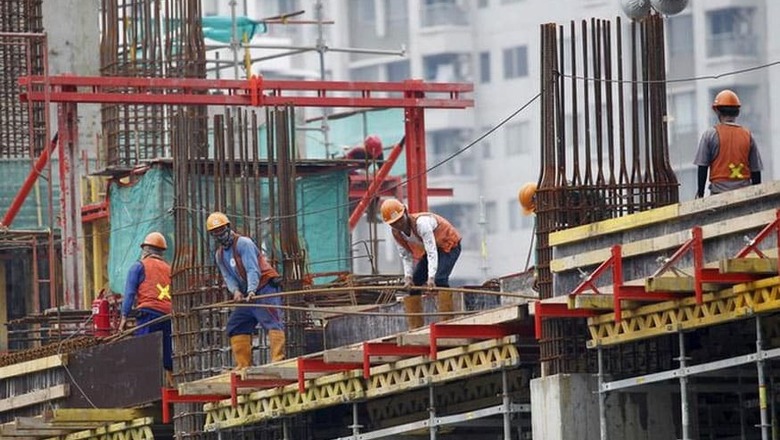
views
Washington: Noting that India is recovering from the temporary adverse effects of demonetisation, the World Bank has projected a strong 7.2% growth rate for India this year against 6.8% growth in 2016.
Even as the World Bank has revised India’s growth figures by 0.4 percentage points as compared to its January forecast, India remains the fastest growing major economy in the world, the World Bank officials said.
The growth projections for China remain unchanged at 6.5% for 2017 and then 6.3% for the next two years 2018 and 2019. The World Bank in its latest Global Economic Prospects, projects Indias growth to 7.5% in 2018 and 7.75% in 2019.
In both the years, the forecast has been downgraded by 0.3 per cent and 0.1 percentage points as compared to the January 2017 forecast.
“A downgrade to India’s fast pace of expansion,” the World Bank said, is “mainly reflecting a softer-than-expected recovery in private investment. In 2016, in India, activity was underpinned by favourable monsoon rains that supported agriculture and rural consumption, an increase in infrastructure spending, and robust government consumption,” the report said.
“In India, recent data indicates a rebound this year, with the easing of cash shortages and rising exports. An increase in government spending in India, including on capital formation, has partially offset soft private investment,” the report said.
“While manufacturing Purchasing Managers Indexes have generally picked up, industrial production has been mixed,” the Bank said in its latest report.
Observing that India's growth is forecast to increase to 7.2% in FY2017 and accelerate to 7.7% by 2019, is slightly below previous projections, the Bank said this outlook mainly reflects a more protracted recovery in private investment than previously envisaged.
“Nonetheless, domestic demand is expected to remain strong, supported by ongoing policy reforms, especially the introduction of the nationwide Goods and Services Tax (GST),” it said.
“Significant gains by the ruling party in state elections should support the government’s economic reform agenda, which aims at unlocking supply constraints, and creating a business environment that is more conducive to private investment,” the Bank said.
M Ayhan Kose, Director of the World Bank Groups Development Prospects Group, in response to a question, underscored the need of reforms in the banking sector. “The government has especially taken steps to address the banking sector weakness, but that remains on the to-do list,” Kose said.
“Second (to do list) of course (is the initiative by the government to remove some of the public investments, exactly the right thing to do to stimulate - to try to reinvigorate - private investment, which has been weak,” the Bank official said in response to a question.


















Comments
0 comment